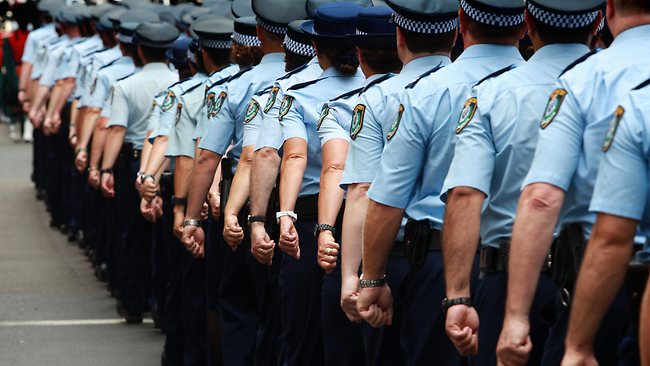
New South Wales has never had full individual freedom – full freedom doesn’t exist anywhere, in any society. The trick of governance has always been to find the right balance between security and freedom. That balance is not something I can achieve in one short blog post; what I can do, though, is point the fact that – like any balancing act – too much on one side and the whole exercise topples over. Too much security and too little freedom, and security disappears.
This truism is particularly relevant given the gross expansion of police powers in NSW. My concern is that – if we didn’t already tip the balance last month – we’re coming terrifyingly close. Last Wednesday, the Crimes (Serious Crime Prevention Orders) Bill 2016 passed through parliament, and is currently awaiting assent.
Without going into specifics, this bill is really bad. When you do go into specifics it gets even worse – but before I do that, it’s instructive to look at the expansion of police powers that has led us up to this point.
In 2006, the Crimes (Serious Sex Offenders) Act introduced continued detention orders; court orders that would allow the government to keep high-risk sex offenders locked up after their original sentences had expired. Thankfully, there were protections; a judge had to be presented with psychiatric evidence that satisfied the court of a likelihood of reoffending. The importance of this Act, however, is that it was a clear separation of criminal punishment from criminal guilt.
Once you uncouple criminal punishment from criminal guilt, the infliction of criminal punishment becomes more and more arbitrary. The 2006 law has proved to be the thin end of the wedge. The thicker end started to appear in 2013, when continued detention orders were expanded from serious sex offenders to serious violent offenders.
And now, in 2016, the powers of detention have expanded again. The Crimes (Serious Crime Prevention Orders) Bill 2016 allows police the ability to easily impose heavy punitive restrictions on individuals. A Serious Crime Prevention Order can stop a person from associating with others, from working in certain jobs, from visiting nominated places and from doing everyday activities, such as using a mobile phone or the Internet.
And, as a scathing submission by the NSW Bar Association points out, all of these draconian conditions can be imposed whether or not a person has been charged with an offence, and even if they have been charged and acquitted. Not only are these powers unprecedented in their reach, they are basically carried out by a parallel system of police judgement. If a court had imposed these powers, they could be reviewed. The “gut feeling” of a police officer cannot.
Police powers have and will always be abused – in fact, that’s one of the growing areas of our practice. But the police powers that have been abused in the past have been the minimum powers required to run a society – the powers of arrest and search, for example. If basic police powers have been egregiously abused in the past, it doesn’t take much understand that with these inflated, unnecessary police powers, the potential for abuse of power expands exponentially. The greater the powers, the greater the potential abuse.

- Peter O'Brienhttps://obriensolicitors.com.au/author/peterob/
- Peter O'Brienhttps://obriensolicitors.com.au/author/peterob/
- Peter O'Brienhttps://obriensolicitors.com.au/author/peterob/
- Peter O'Brienhttps://obriensolicitors.com.au/author/peterob/




